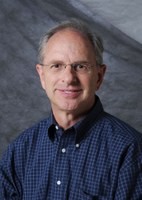Dec 17 2014
Two researchers at the University of Louisville today were named Fellows of the National Academy of Inventors (NAI).
 Kevin Walsh, Ph.D.
Kevin Walsh, Ph.D.
Suzanne T. Ildstad, M.D., director of UofL’s Institute for Cellular Therapeutics, and Kevin M. Walsh, Ph.D., director of the Micro/Nano Technology Center, were among 170 new Fellows named. They will be inducted by Deputy U.S. Commissioner for Patent Operations Andy Faile of the United States Patent and Trademark Office during the 4th Annual Conference of the National Academy of Inventors on March 20, 2015, at the California Institute of Technology in Pasadena.
“As a premier metropolitan research university, UofL strives to develop ideas into discoveries, then to translate these into forms that benefit all,” said UofL Executive Vice President for Research and Innovation William M. Pierce Jr., Ph.D. “Drs. Ildstad and Walsh are two of our many brilliant and dedicated scholars who do this every day. We are very proud of them and their achievements.”
Those named today bring the total number of NAI Fellows to 414, representing more than 150 prestigious research universities and governmental and non-profit research institutions.
Included among the NAI Fellows are 208 members of the other National Academies, 21 inductees of the National Inventors Hall of Fame, 16 recipients of the U.S. National Medal of Technology and Innovation, 10 recipients of the U.S. National Medal of Science, 21 Nobel Laureates, 11 Lemelson-MIT prize recipients, 107 American Association for the Advancement of Science Fellows, and 62 Institute of Electrical and Electronics Fellows, among other awards and distinctions.
To qualify for election, NAI Fellows must be academic inventors named on U.S. patents and nominated by their peers for outstanding contributions to innovation in areas such as patents and licensing, innovative discovery and technology, significant impact on society and support and enhancement of innovation.
About Suzanne Ildstad:
Ildstad is the Jewish Hospital Distinguished Chair in Transplantation and professor in the Department of Surgery in the UofL School of Medicine. She also holds associate appointments in the school’s Department of Physiology and Biophysics and Department of Microbiology and Immunology.
Ildstad has 20 patents related to her research and is the founding scientist of Regenerex LLC, a biotechnology company. Her research is being translated into the clinical arena with FDA approval to enroll patients in six different research protocols to treat autoimmune disease (multiple sclerosis) and red blood cell disorders (sickle cell anemia and thalassemia), inherited metabolic disorders and to induce tolerance to organ transplants (kidney).
In 2013, Ildstad, representing Regenerex, entered into collaboration with a multinational pharmaceutical company to provide access to stem cell technology she pioneered that has the potential to help transplant patients avoid taking anti-rejection medicine for life. The technology, known as Facilitating Cell Therapy, in early research enabled five of eight kidney transplant patients to stop taking about a dozen anti-rejection pills a day to suppress their immune systems. It was the first study of its kind where the donor and recipient did not have to be biologically related and immunologically matched.
Ildstad graduated from Mayo Medical School in Rochester, Minnesota, trained in Harvard Medical School’s general surgery program at Massachusetts General Hospital and was a staff fellow with the National Institutes of Health. She was elected to the Institute of Medicine in 1997 in recognition of her contributions to cell therapies.
About Kevin Walsh:
Walsh is a professor and holder of the Samuel T. Fife Endowed Chair in the Department of Electrical and Computer Engineering at the J.B. Speed School of Engineering. He also is founding director of the Micro/Nano Technology Center (MNTC), home of the nationally-ranked, class 100, $30 million, 10,000-square-foot cleanroom in which dust particles are totally eliminated so one can successfully design and prototype ultra-miniature devices and systems for a variety of fields including microelectronics, health care, consumer products and defense.
Walsh has 12 awarded patents and is co-founder of four technical start-up companies – Assenti, Intellirod Spine, UltraTrace Detection and Simon Sounds. He has published more than 150 technical papers in the areas of micro/nanotechnology and micro-electro-mechanical systems (MEMS) and his research group has won over $35 million in external research funding from the National Science foundation, NASA, National Institutes of Health and others. He has twice been presented with the school’s top Research Award for the 3-year periods of 1998-2000 and 2007-2009.
Under his leadership, the MNTC has brought in over $55 million of research awards into UofL. In 2008, Walsh and his team started the "KY nanoNET Initiative" a statewide network funded by the National Science Foundation for the coordination of micro and nanotechnology efforts in the Commonwealth.
Walsh earned bachelor’s and master’s degrees in electrical engineering from UofL and a Ph.D. degree in electrical engineering (microelectronics/MEMS) from the University of Cincinnati.
“It’s a tremendous honor to be one of the first researchers at the University of Louisville to be inducted into the National Academy of Inventors,” said Walsh. “It’s been very exciting these past 25 years building nationally competitive micro/nano capabilities at UofL and working with extremely talented faculty, engineers and students applying this futuristic technology to a variety of challenging problems.”